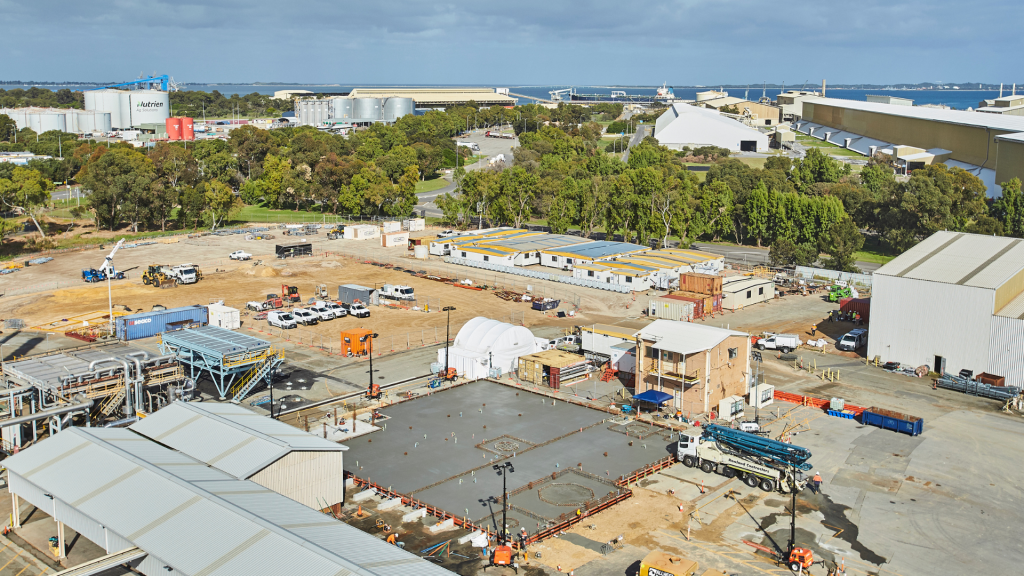 Last week the Sodium Cyanide (SCN) Plant Expansion project team achieved an early milestone in the construction phase of the project after only recently completing the engineering phase of the project – a huge milestone in itself.
Last week the Sodium Cyanide (SCN) Plant Expansion project team achieved an early milestone in the construction phase of the project after only recently completing the engineering phase of the project – a huge milestone in itself.
“The project is focused on debottlenecking and modernising the existing plant and improving critical infrastructure, all while maintaining safe and continuous operations,” Project Manager Major Projects,” Greg Samuels said, “Moving from engineering and design to construction phase isn’t just an engineering milestone — it’s the turning point where concept becomes construction.
Whilst there has been weeks of construction preparation already, a key component in the construction phase took place last week when SCN team members and civil contractors were on site to complete the Reverse Osmosis (RO) Slab Pour, which required 400m3 of concrete to be poured in under five hours.
Over 30 personnel were involved in the job, which utilised 63 truckloads of cement and two concrete pumpers – with the slab pour being as successfully completed by 8:30am.
What does the SCN Plant Expansion project involve?
The SCN Plant Expansion project is not only focusing on increasing production capacity but also how the plant operates technically, developments in process safety, improvements on the sustainability front and forecast future capacity.
The expansion will also see improved water efficiency and a reduction in emissions due to a new incinerator processing start-up process gases, reducing the emissions released to the atmosphere.
“I’m pleased to say this expansion is set to deliver a nearly 30% reduction in emissions intensity. It also improves our water efficiency by cleaning and recycling the water back into the cooling towers. That’s a direct result of smart design and new technology being brought into the process.” General Manager Major Projects, David Zacher said.
The project will see an increase in capacity across both the liquids and solids plants, with the liquids plants increasing by over 30%, from 94,000 tonnes per year to 130,000 and the solids plant increasing from 46,000 to 60,000 tonnes per year.
A new, higher-capacity thermal oxidiser will help keep overall emissions at current levels, even as production increases, whilst a new incinerator will be installed which will help reduce the plants’ carbon footprint.
“This is a major project — it’s about more than increasing production. It’s about setting a new benchmark for safety, for emissions performance, and for how we grow sustainably….”David said.